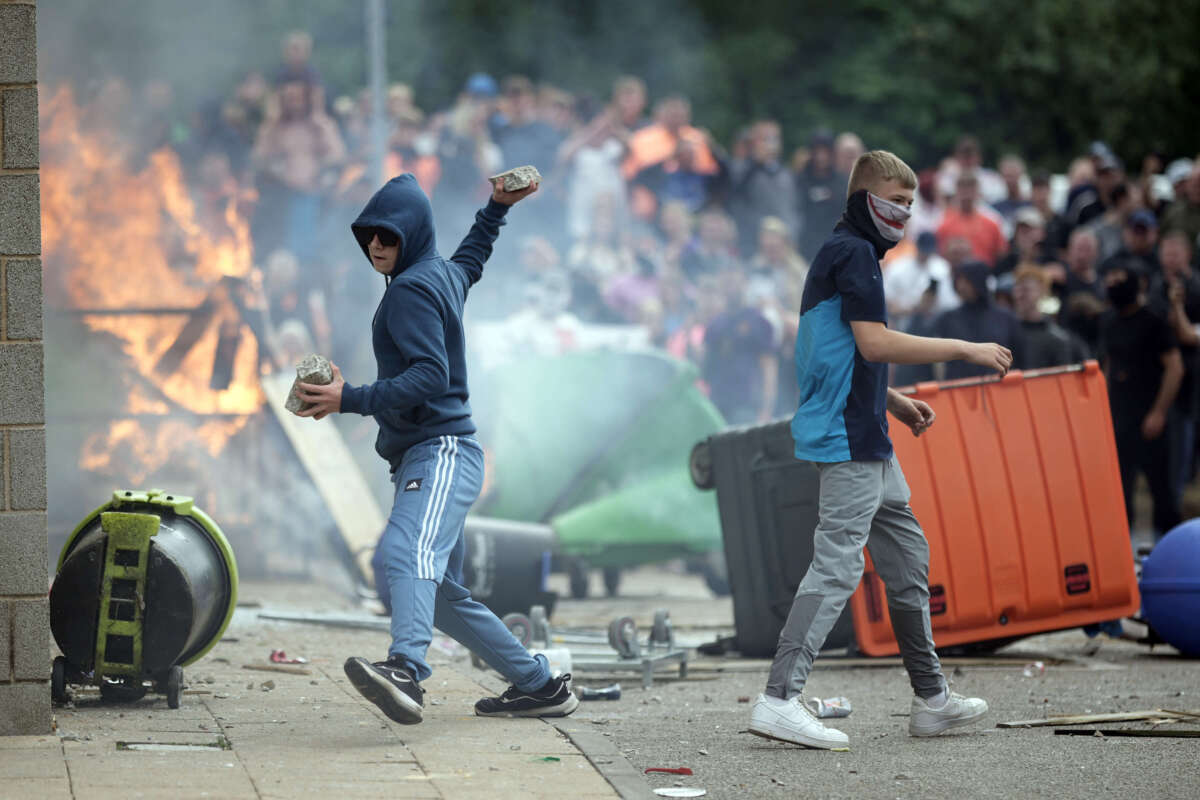Far-right extremists have unleashed a wave of attacks targeting mosques, hotels housing refugees, and people of color in several British cities.
The Doha International Center for Interfaith Dialogue (DICID) has issued a strong condemnation of the racist attacks taking place across the UK.
In a recent post on their official Instagram page, DICID called for “decisive action to protect vulnerable communities, uphold values of tolerance and acceptance, and counteract the divisive rhetoric fueling these dangerous incidents”.
These assaults, perpetrated by far-right supporters, have primarily targeted minorities, particularly refugees and Muslims. The most disturbing incident involved rioters setting fire to a hotel accommodating asylum seekers.
As the British government struggles to manage the escalating violence, Prime Minister Keir Starmer has implemented emergency measures, including deploying additional police forces and security of mosques across Britain and has considerd terrorism charges for some suspects.
DICID has denounced these violent acts, which are intended to incite hatred, malice, and anger within communities.
“The perpetrators of such crimes clearly aim to sow division and discord, actions that stand in stark opposition to the values of humanity and tolerance,” stated DICID.
The center emphasised that these attacks not only violate human rights but also contradict the principles of all major religions, which advocate for acceptance and understanding. Assaulting innocent people represents a severe breach of ethical standards and moral decency.
DICID has called on British authorities to take robust action to safeguard their Muslim citizens and places of worship.
They urge the government to ensure the protection of refugees and to implement measures to prevent further incidents of violence.
Origins of the UK Riots
The resurgence of far-right violence and racial hatred in Britain mirrors past waves of xenophobia.
Historical parallels can be drawn with the racism experienced by immigrants in post-war Britain and the xenophobic sentiments following the 2001 terrorist attacks and the 2016 Brexit referendum.
The current violence has been shaped by years of anti-immigrant rhetoric from various political figures and media outlets.
Far-right groups, such as Nigel Farage’s Reform movement, have been particularly vocal in blaming societal issues on migration.
However, it is important to note that the current violence began following a tragic stabbing attack in Southport that killed three young girls.
This violence has been significantly fueled by misinformation spread on social media.
Far-right figures propagated false claims that the attacker was an immigrant and Muslim, which ignited the riots.
However, the suspect, 17-year-old Axel Rudakubana, is a British national of Rwandan descent, not a migrant or Muslim.
Far-right figures like Tommy Robinson have significantly inflamed tensions through social media.
In Tamworth, near Birmingham, extremists targeted a Holiday Inn housing asylum seekers, throwing bricks, smashing windows, and vandalizing the property with racist graffiti.
Such scenes have become alarmingly common, with rioters attacking various locations and threatening minorities.
Elon Musk’s recent inflammatory post on X, suggesting that “civil war is inevitable” in the UK, has further fueled the conflict.
Qatar’s Embassy in London has issued a statement on Tuesday advising its citizens in the capital not to engage in protests as far-right riots continue across the UK.







